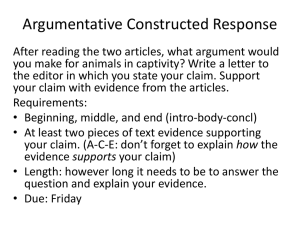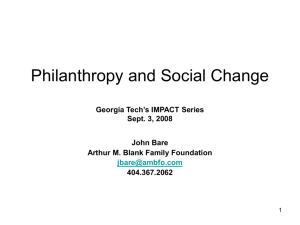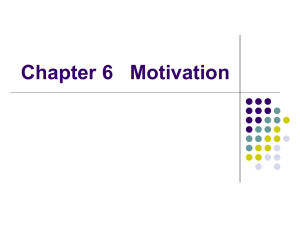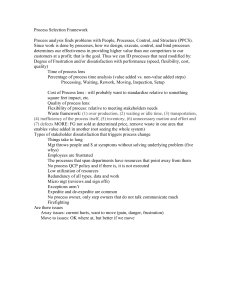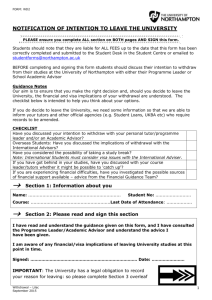Revelations Visions, Prophecy, and Politics in the Book of
advertisement
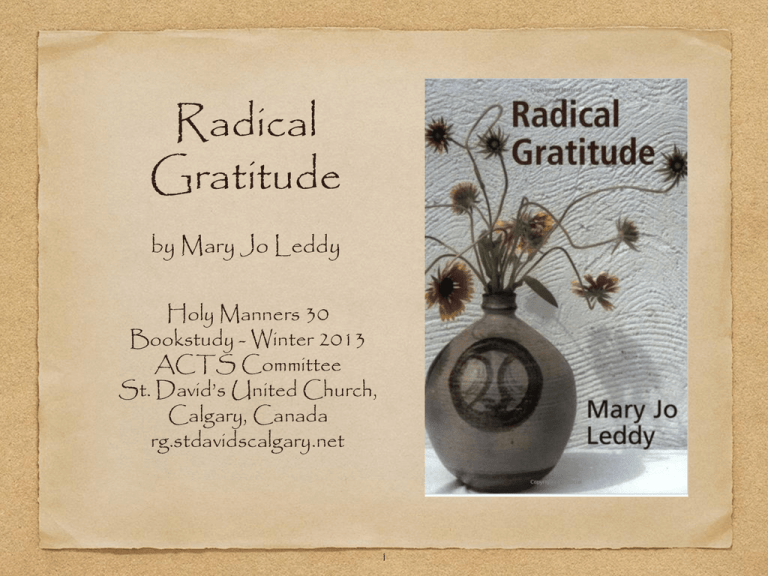
Radical Gratitude by Mary Jo Leddy Holy Manners 30 Bookstudy - Winter 2013 ACTS Committee St. David’s United Church, Calgary, Canada rg.stdavidscalgary.net 1 Session 2 Ch 2 Perpetual Dissatisfaction Additional resources are on site. http://rg.stdavidscalgary.net 2 What Drives Us? We are so rich we make houses for cars. We are told the car will make us happy but the car drives us. The Culture of Money •More influential than cultures of democracy or religion. •Consumerism is dominant. •Advertising - anything repeated becomes true. Each American sees 3 years of advertising in a lifetime. •“The devastation begins when material realities begin to consume us as human beings.” 9 The Captivity of Craving. • “The problem arises when we think that we are buying identity, meaning, and purpose in the process. According to ancient wisdom, identity, meaning, and happiness are discovered rather than purchased.” • “The microchip itself crystallizes this craving.” • Craving may be subtle - the craving of More: more experiences, more relationships, more information, more spirituality. • luxury transforms to need. 9 Culturally Induced Dissatisfaction. 9 Culturally Induced Dissatisfaction. 9 A Deeper Dissatisfaction. • “I don’t have enough, becomes I am not enough, becomes I am not good enough.” • “It generates within us profound feelings of powerlessness ...” • “Nothing I do or say will make a difference. My life doesn’t matter.” • There are two ways to respond: to feel paralyzed or to be perpetually busy, unable to say no. 9 A Wider Dissatisfaction. • This can “... also manifest itself in a general dissatisfaction with other people, with one’s work, with the world, and with one’s church or religious tradition.” • “... the other is never ‘good enough’” • [we] “... belittle what is done ...” • [it] “... can extend even to the world ...” • “it makes it almost impossible to cherish the world ...”. 9 Partial Liberations. • There are: very well trained ministers, helpful therapies, wise spiritual guides. • “However, these programs can never be completely helpful as long as the underlying dynamic in the culture of money continues unabated.” • “This should at least make us consider the claim that spirituality may succeed where organized religion has failed.” • “The search for spirituality can itself become a consuming process.” . 9 Partial Liberations. • “Religion alone cannot establish solid values and relationships as long as the culture of money remains unquestioned and untransformed.” • “If the work for justice is driven by a general dissatisfaction with the world, with other people, and with institutions, then it will never lead to profound lasting social change.” • “Genuine social and political change can happen only if it is based on or accompanied by an attempt to transform the spirit of craving and dissatisfaction.” 9 Captivity Then and Now. • *The Babylonian captivity of ancient Israel was a time of prophets, and of their writing their scriptures. • “These prophets spoke the unpopular message that the people were in captivity because of choices they had made ... They were in captivity because their forbears believed they could “... buy and sell identity, meaning, and happiness.” • It was not the poor that were taken to Babylon, but the elites and the skilled workers. 9 Captivity Then and Now. • Second Isaiah provided a basis for hope when he got them to consider how their God was different from the god of empire. This parallels our own experience. “We are in captivity because we have made a god out of an economic system and have worshipped it as if it were the only reality.” • “Too many who deal in the business of knowledge and religion seem strangely unable to question the underlying cultural assumptions that hold us captive.” 9 Video - 15 m A Lecture - “Jesus and Empire” by John Dominic Crossan. A leading Jesus scholar backgrounds how Christianity was born in a context of Empire. And how different were the reactions of John and Jesus to the power of Empire. A lesson for our own time, when the consequence of economic injustice is again “global”, as in Jesus’ time. http://www.youtube.com/watch?v=rFjECpxADCU 9 Break Discussion Questions: 1. Do you agree with Mary Jo that we are an imperial society and our dissatisfaction is mainly due to our culture of money? 2. What would Jesus do? What might the United Church do? What might we do? next week: Ch 3. Radical Gratitude 10
